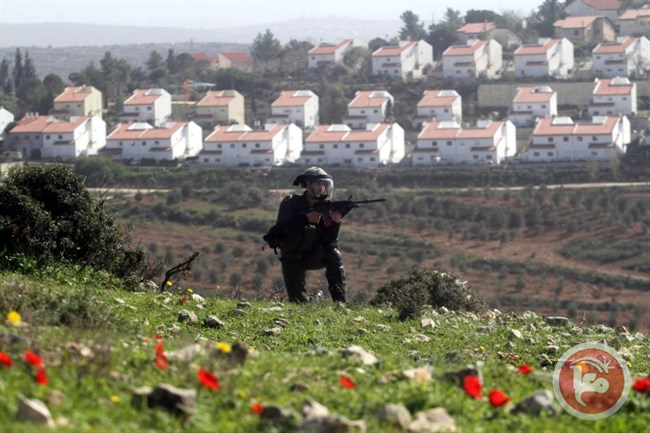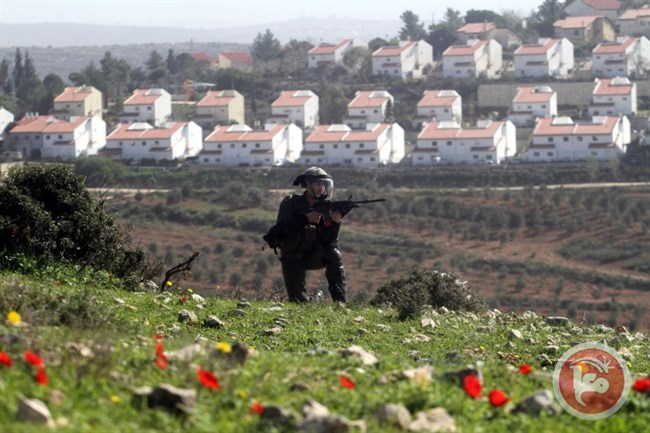Ma’an News Agency | – –
BETHLEHEM (Ma’an) — The government of Spain released a statement on Friday joining the United States in condemning Israel’s recent approval of the construction of 181 new housing units in the illegal Gilo settlement in the occupied West Bank.

The approval was the latest in a long line of settlement approvals in recent months that would see more than a thousand new settler units constructed on occupied Palestinian land.
The statement reiterated Spain’s disapproval of Israel’s settlement expansions, and “like the rest of the international community, it considers Israeli settlements on Palestinian Occupied Territories to be illegal under international law.”
“The government also argues that these illegal settlements are an obstacle to the viability of a two-State solution, and accordingly, to peace, as set out in the report by the Middle East Quartet issued back in June,” the statement continued.
The Spanish government also urged Israeli authorities to overturn their most recent settlement approvals.
After the Jerusalem Local Planning and Building Committee approved the new settler housing units Wednesday, United States Department spokesperson John Kirby quickly condemned the decision that evening, reiterating the United States’ disapproval of Israel’s settlement expansions, saying that Israel’s actions “risk entrenching a one-state reality.”
Israeli newspaper Haaretz said that the construction at Gilo was delayed for several months after beginning more than a year ago after several “ancient graves” were discovered at the site. Israeli ultra-orthodox Jews had demanded that the construction cease.
The settlement expansion plans were renewed after more funds were invested into the project, and the expansion was rerouted away from the “ancient graves,” according to Haaretz, and will now stretch into the Cremisan Valley, which separates the settlement from the Palestinian village of al-Walaja, which is surrounded by Gilo and the neighboring Har Gilo settlement.
According to Israeli human rights group B’Tselem, Israeli authorities have already confiscated half of al-Walaja’s land, some of which was used for the original construction of Gilo, and some seized by an Israeli military order which eventually saw the establishment of Har Gilo.
Israel’s separation wall also cuts village residents off from accessing their farmland, while the planned route of the wall is expected to completely encircle al-Walaja, with plans to construct a tunnel that residents can use to access the rest of the West Bank.
At least 30,000 Israelis reside in the Gilo settlement in contravention to international law, while some 1,300 reside in Har Gilo. Israeli authorities had construction tenders for 89 units in Gilo, when tenders were also opened in Neve Yaakov, Pisgat Zeev, and Har Homa.
The latest settlement approval in GIlo follows on the heels of a long line of Israeli settlement expansion plans. In October, the Israeli Civil Administration had advanced plans to construct a new Israeli settlement in the northern West Bank, likely to be used to relocate settlers residing in the Amona outpost following an Israeli Supreme Court decision to demolish the outpost by the end of this year.
There are an estimated 500,000 to 600,000 Israeli settlers residing in 196 illegal Israeli settlements in the occupied West Bank and occupied East Jerusalem, and a further 232 settler outposts considered illegal both by international law and Israeli domestic law, according to the Applied Research Institute – Jerusalem (ARIJ).
All of the settlements are considered by Israel to be suburbs of Jerusalem, as Israeli authorities have consistently expanded the Jerusalem municipality to include nearby illegal Israeli settlements located in the West Bank.
Human rights groups and international leaders have continued to strongly condemn Israel’s settlement construction, claiming it is a strategic maneuver to prevent the establishment of a contiguous, independent Palestinian state by changing the facts on the ground, while members of Israel’s parliament, the Knesset, have publicly announced their support for plans aimed to annex the entirety of Area C — the more than 60 percent of the West Bank under full Israeli military and civil control.



 © 2025 All Rights Reserved
© 2025 All Rights Reserved